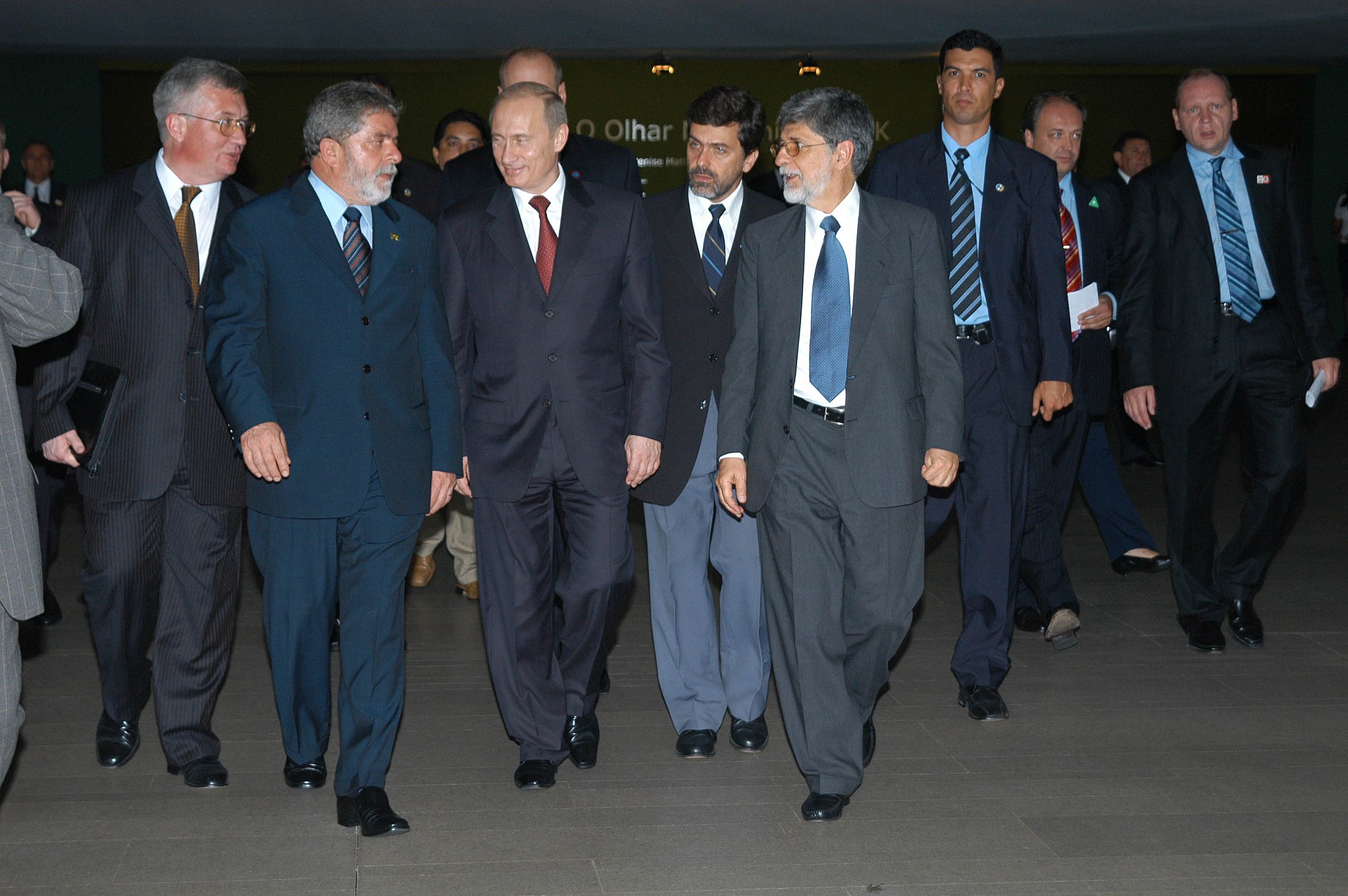Why won’t Brazil send aid to Ukraine?

Russian president Vladimir Putin on a state visit to Brazil in 2004.
Anna Johnson - The United Nations has condemned the invasion of Ukraine and called for Russia to immediately withdraw and end the fighting. Of the 193 states of the UN, 141 voted for the resolution to end the war - including Brazil. But, though they have condemned the fighting, Brazil has not offered material support to Ukraine. Over a year into the war, many UN member states have sent money and arms to Ukraine including the United States, Norway, and the Netherlands in multi-year support programs. In place of material aid, Brazil has offered to mediate peace talks.
Brazil’s abstention from sending funds to Ukraine is part of its geopolitical code - a determination of how a state interacts with others on an international level. It determines a state’s allies and enemies and how they treat those different parties. Brazil’s recently elected president, Luiz Inácio Lula da Silva, has said he does not want Brazil to join the war, but to end it. This calculation weighs Brazil’s different interests - prioritizing a commitment to peace while also taking trade relations with Russia into account. Brazil relies on Russia for imports of fertilizer and fuel, both critical parts of each state’s economy. If Brazil were to take a hardline position against Russia by providing arms to Ukrainian soldiers on the front lines, that trade relationship would fracture beyond repair. They would be destroying a key trade partner to stop the conflict. By offering to broker peace in the war, Brazil is showing a commitment to end the fighting in Ukraine while leaving that trade relationship intact. Brazil isn’t the only state to offer to host peace talks - Belarus hosted peace talks in 2022. The U.S. has been pushing for Brazil to offer more material support to Ukraine, but with its established trade relationship with Russia, Brazil is unlikely to make a major shift in its geopolitical code.
The flow of goods into Brazil from Russia is a key element of this calculation. In a global economy, isolation from trade flows can be catastrophic to domestic industries. Brazil imported over six billion dollars of fertilizers from Russia in 2022. Replacing those imports would be nearly impossible. Agriculture accounts for as much as 29% of Brazil’s GDP annually. A major blow to that sector of the economy would lead to economic instability throughout the state. Brazil is relying on their offer to lead peace talks as enough of a commitment to Ukraine to satisfy Western allies like the United States while maintaining enough neutrality to sustain a trade relationship with Russia.
Photo Credit: Arosset, CC BY-SA 4.0, via Wikimedia Commons

